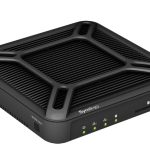Galaxy Watch vs. Fitbit: Choosing Your Fitness Companion
Defining Your Needs: Smartwatch First or Fitness Focus?
Galaxy Watch prioritizes being a full smartwatch extension of your Android phone. Fitbit prioritizes core health and activity tracking with longer battery life.
- Galaxy Watch: Full notifications, calls, apps, customizable interfaces. Advanced health/fitness are key features among many. Larger, brighter displays typically.
- Fitbit: Sleeker, simpler designs. Core focus is step counting, sleep analysis, heart rate monitoring, and guided workouts. Basic smart features. Often excels in battery longevity.
Advanced Health Tracking: Depth & Innovation
- Galaxy Watch (Especially 7 & 8 Series): Boasts the most sophisticated sensor suite. Body Composition Analysis (BIA) measures muscle mass, fat %, body water. Advanced multi-layered BioActive Sensor powers comprehensive heart rate monitoring, ECG, blood pressure tracking (region-dependent), and temperature sensing.
- Innovation Lead: Galaxy Watch 8 introduces Antioxidant Index (Labs feature). Measures skin beta-carotene levels via thumb-on-sensor, providing personalized nutritional insights.
- Sleep Tracking: Detailed breakdown of sleep stages, sleep score, SpO2 monitoring.
- Daily Readiness: Provides "Daily Energy Score".
- Fitbit: Excels at accessible, insightful health tracking. Key strengths include highly regarded sleep analysis (Sleep Score, Stages), Stress Management Scores (EDA sensor on Premium models), and robust Activity Minutes tracking. Generally offers simpler sensor data interpretation.
Fitness & Activity Tracking: Core vs. Comprehensive
- Both Brands: Reliably track steps, distance, calories burned. Support common workouts (running, cycling, swimming). Heart rate accuracy is generally good for both in steady-state cardio; complex intervals or cycling can be challenging for optical sensors (Galaxy Watch Ultra noted for slightly better robustness here).
- Galaxy Watch Advantage: Wider range of auto-detected workout types. Comprehensive onboard GPS for outdoor activities. More detailed post-workout metrics. Higher-end models build tougher for intense sports.
- Fitbit Advantage: Simpler goal structure appeals to beginners/motivators. Strong community features and workout programs.
Battery Life & Charging: Trade-Offs
- Fitbit: Clearly leads. Multi-day battery life (often 5-7+ days) is standard.
- Galaxy Watch: Requires nightly or every-other-night charging typically. Latest Galaxy Watch 8/Ultra models feature 10W fast charging to minimize downtime.
Pricing & Value Proposition
- Galaxy Watch: Higher starting price reflects smartwatch capabilities. Expect premium pricing for Watch8 Classic and Ultra ($530-$700+ EUR range). Offers cutting-edge tech.
- Fitbit: More affordable entry points focused purely on core tracking. Premium models offer deeper health insights, but feature set remains fitness/health centric.
Verdict: Who Wins?
- Choose Galaxy Watch If: You want a powerful smartwatch and cutting-edge health/fitness features like body composition, Antioxidant Index, detailed ECG/BP, advanced sleep, and robust workout tracking. You prioritize a bright screen and fast charging over multi-week battery life. Budget is higher.
- Choose Fitbit If: Your primary goal is accessible, insightful health and activity tracking with long battery life. You value sleep/stress insights and guided fitness programs. You prefer simpler operation and potentially lower cost.












